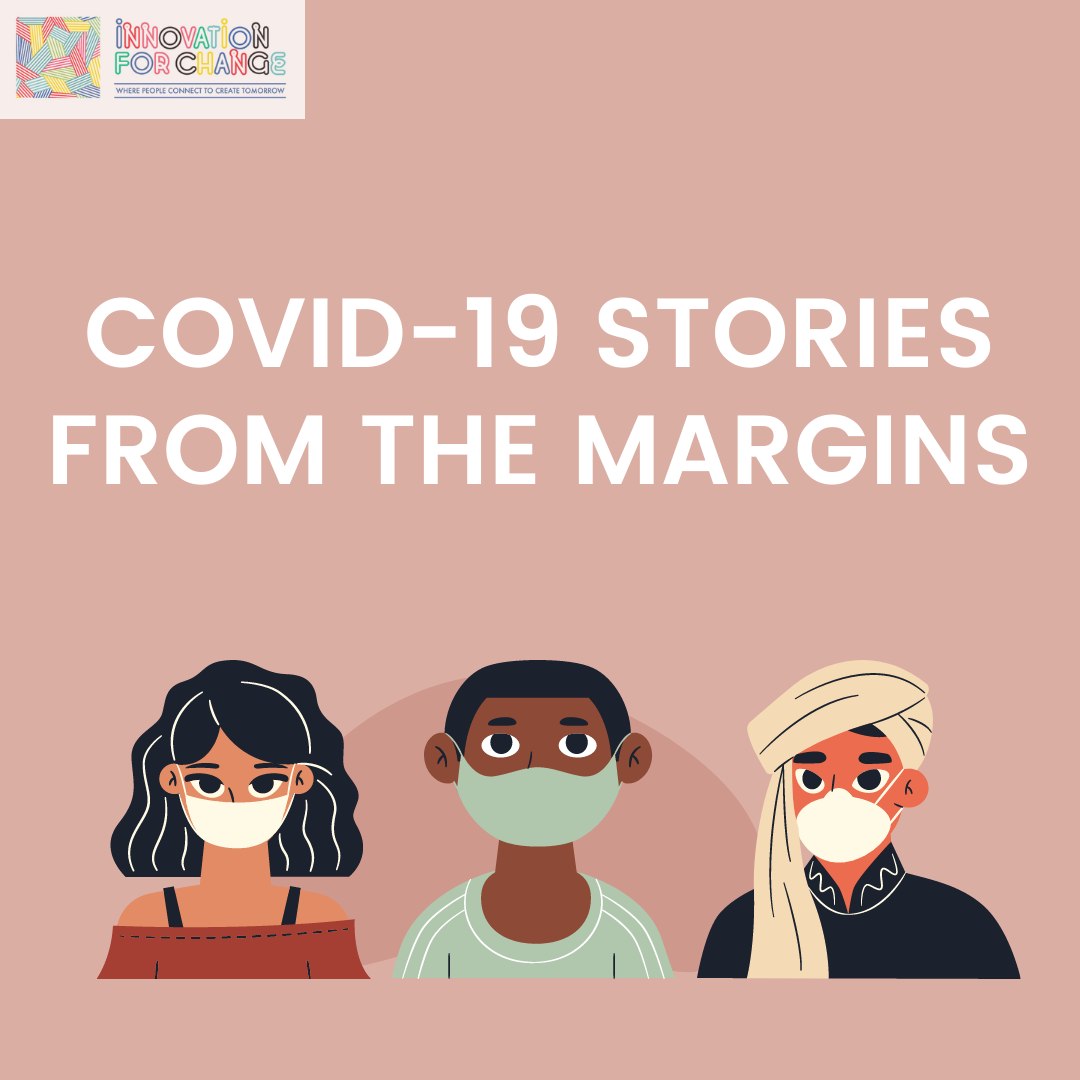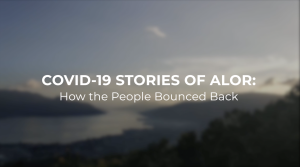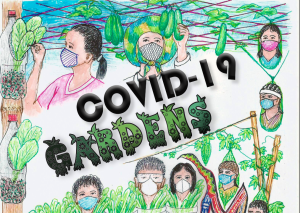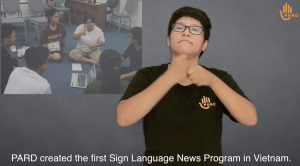
The COVID-19 pandemic placed a spotlight on the inequalities across the world, revealing symptoms and effects of some states’, governments’, institutions’, businesses’, and peoples’ unpreparedness in handling a public health-economic-socio-political crisis of this magnitude. Marginalized groups were among the worst affected by the pandemic as extended lockdowns and disruptions to businesses, welfare, education, and healthcare facilities further aggravated lack of access to basic needs. Moreover, as many businesses and governments pivoted to digital or online-based services, unbanked communities and those living in areas with little-to-no connectivity suddenly had no access to goods and services. Despite this, communities adapted.
Where there have been stories of struggle and sacrifice, there have also been stories of hope and resilience. These are the narratives that the Innovation for Change – East Asia project on “COVID-19 Stories from the Margins” features.
Read along to find out how I4C-East Asia equipped six individuals from marginalized communities in Indonesia, Malaysia, Myanmar, the Philippines, and Vietnam with skills to share their own experiences and lessons from the pandemic.
Jeheskiel Alopen (Eki) | How the People Bounced Back – Eki, a marine conservationist from Indonesia, filmed a short documentary titled, How The People Bounced Back, which follows the pandemic life of the Indigenous community of Indonesia’s Alor Island. The film is completely narrated by Abdul Rahman Sumbawa, a local fisherman, and Immanuel Duka, a local candlenut and produce farmer. Sumbawa speaks eloquently about the pandemic’s impact on Alor’s fishing, farming, and tourism industries over Eki’s beautiful shots of the island’s beaches, roads, and markets. We see Sumbawa’s daily fishing routine as he explains that broken supply chains caused a catastrophic drop in the tuna prices that he and other fishermen rely on. He and other fishermen quickly adapt to the pandemic-induced changes in the industry, and discover that they are able to make up for lost income by selling smaller pelagic fish to local merchants instead. Duka describes a similar experience with the price of his candlenut harvest, and now relies on government cash assistance. How The People Bounced Back gives voice to Alor’s Indigenous peoples and shows their creative survival during this pandemic.
WATCH How the People Bounced Back here.
Mohammad Esmail Ghaibi | Delaram – Esmail Gaibi, a journalist from the Afghan refugee population in Malaysia, penned a vivid short story in Farsi named after its main character, Delaram. The story follows its 17-year-old protagonist as she and other family members fall ill with COVID-19. The family faces language and financial barriers to access testing in Malay and English, and only through Delaram’s skillful community networking do they manage to find the language interpretation and donations they need to access care. Gaibi captures the fear, despair, and mistrust of the medical system the family experiences when Delaram and her father are separated and quarantined, as well as the impact of COVID-19 on refugee families that have already survived persecution and separation from their homeland. In Gaibi’s Delaram, Malaysia’s Afghan refugee community’s self-organization, efficiency, and generosity in helping one another prove to be the saving grace during this pandemic.
U Aye Min | The More We Suffer, The More We Love – U Aye Min is a Muslim-minority taxi driver based in Yangon, Myanmar who writes in pseudonym to avoid repercussions from state agents. His essay, The More We Suffer, The More We Love, sketches pandemic stories he heard from his passengers. The most compelling story showcases Muhammad, a devoted father and business owner who presciently amasses masks and hand sanitizers before the first COVID-19 case hit Myanmar. His wisdom allows him to both support his family during the pandemic, and donate masks and other supplies to friends, neighbors, and local hospitals. Muhammad and others notice that the country’s rampant discrimination against Muslims has decreased during the pandemic.
The More We Suffer, The More We Love, like The Pandemic’s Silver Lining, are valuable reminders that despite the multiple crises it has caused, the COVID-19 pandemic has also, in some instances, brought unexpected freedom and ease to minority people in certain parts of Asia.
READ The More We Suffer, The More We Love here.
Sixto Talastas | COVID-19 Gardens – Sixto Talastas, an Indigenous cultural worker and artist from the Cordillera region of the Philippines, created a comic book called COVID-19 Gardens based on the pandemic experiences of his friends, neighbors, and tribe mates in Baguio City. His moving comic illustrates Indigenous-led urban gardening efforts during the pandemic that brings together Indigenous and non-Indigenous neighbors alike to supplement their food supplies when they started losing their jobs. The comic follows the collective’s members as they take turns working in each other’s gardens. Through its diverse set of characters, the comic explains Indigenous concepts such as ayyew (zero waste), kankanaey (labor exchange or mutual aid), and binnadang (helping hand). Talastas’ comic even includes the humorous voices of animals and inanimate objects such as plastic bottles in the environment to show how deeply each character impacts one another. Traditional principles like ayyew were previously practiced in larger farms – Talastas shows how the community ingeniously adapted ayyew for urban gardens during the pandemic through the use of vermiculture, or worm composting. Binnadang is illustrated through the loving home cooked food drop-offs the community makes for a member who falls ill with COVID-19.
COVID-19 Gardens covers much ground in nine short pages to show a community’s resilience during the pandemic under Indigenous leadership.
READ the illustrated story of COVID-19 Gardens here.
Nguyen Tran Thuy | PARD Vietnam – Thuy Tien, founder of a deaf community organization in Vietnam, developed a video to document the organization’s efforts to meet the needs of the deaf community during the pandemic. The video shows Tien signing to explain the history of the failed oralism approach imposed upon deaf schools in Vietnam, leading to deaf students’ high drop-out rates from school. As a result, many deaf people in Vietnam do not read fluently, and have trouble accessing news information during the pandemic. In response, Tien’s organization, Psychoeducation and Applied Research Center for the Deaf (PARD), develops its own sign language news program, by and for deaf people, with the goal of disseminating accurate health information and more during the pandemic. Their program gained such popularity that PARD began to train other deaf clubs in different parts of Vietnam to develop their own local news programs.
Tien highlights the ingenuity and innovation of Vietnam’s deaf community during this pandemic and reminds us that the deaf community’s best advocates are always deaf people themselves.
WATCH the PARD Vietnam video here.
Fazelyn Jr | The Pandemic’s Silver Lining – Fazelyn Jr, a trans advocate in Malaysia, wrote an empowering personal essay, The Pandemic’s Silver Lining, on her journey towards authentic self-expression as a transwoman working in a corporate office in a country under Sharia law. The essay chronicles the pain she experiences in the years she abides by societal and family gender expectations until her decision to transition to a more feminine presentation. When she receives backlash from coworkers, and management responds with a directive to have her cut her hair, Fazelyn seeks help from fellow advocates in the trans community and dives into learning about her rights. She manages to meet company requirements while honoring her authenticity by wearing a wig during working hours. However, when the pandemic forces everyone to start working from home, Fazelyn is gifted with an unexpected opportunity to freely live in her authentic gender expression and work without anxiety.
The Pandemic’s Silver Lining is an important essay that calls us to evaluate discriminatory practices in our society, and how to build a more equal workplace for all.





